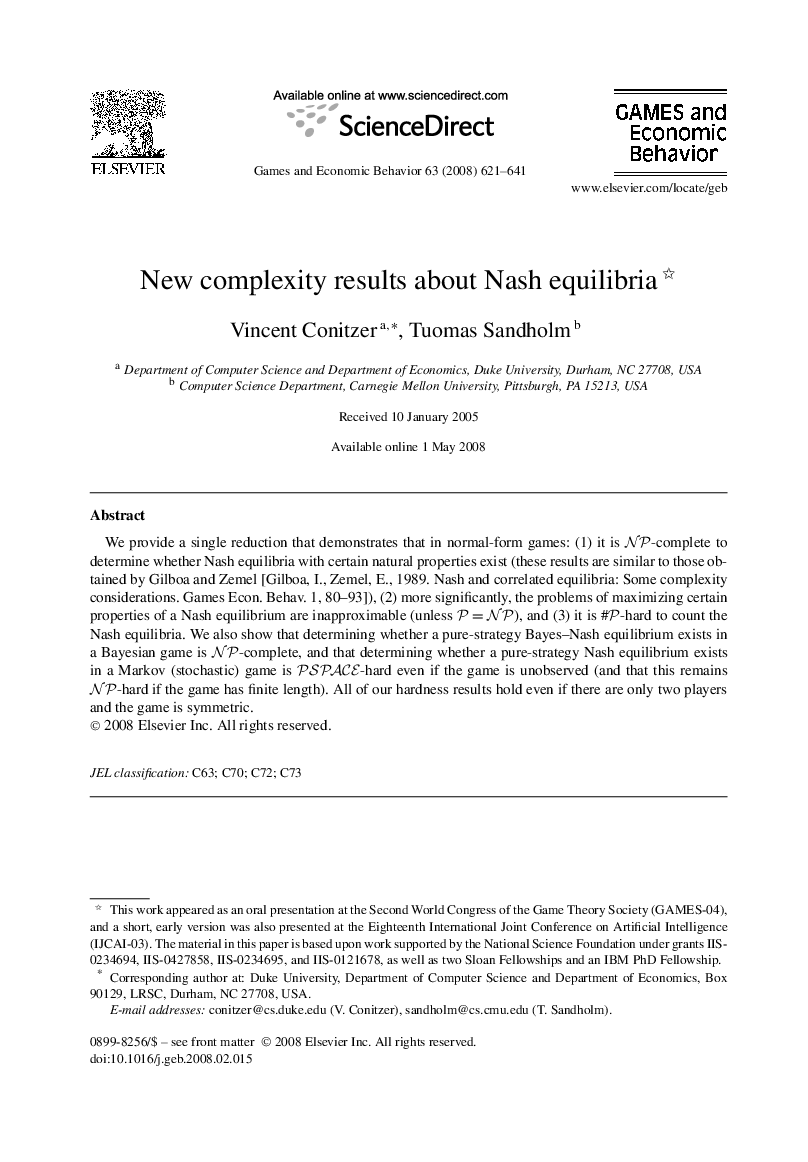| Article ID | Journal | Published Year | Pages | File Type |
|---|---|---|---|---|
| 5072794 | Games and Economic Behavior | 2008 | 21 Pages |
We provide a single reduction that demonstrates that in normal-form games: (1) it is NP-complete to determine whether Nash equilibria with certain natural properties exist (these results are similar to those obtained by Gilboa and Zemel [Gilboa, I., Zemel, E., 1989. Nash and correlated equilibria: Some complexity considerations. Games Econ. Behav. 1, 80-93]), (2) more significantly, the problems of maximizing certain properties of a Nash equilibrium are inapproximable (unless P=NP), and (3) it is #P-hard to count the Nash equilibria. We also show that determining whether a pure-strategy Bayes-Nash equilibrium exists in a Bayesian game is NP-complete, and that determining whether a pure-strategy Nash equilibrium exists in a Markov (stochastic) game is PSPACE-hard even if the game is unobserved (and that this remains NP-hard if the game has finite length). All of our hardness results hold even if there are only two players and the game is symmetric.
